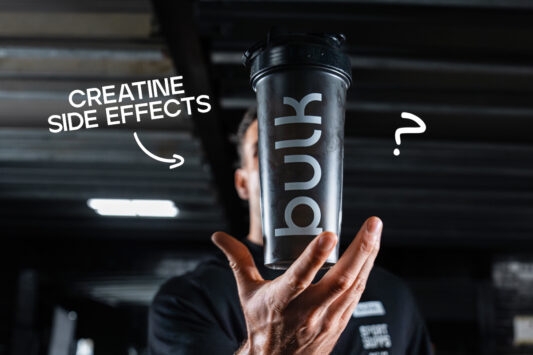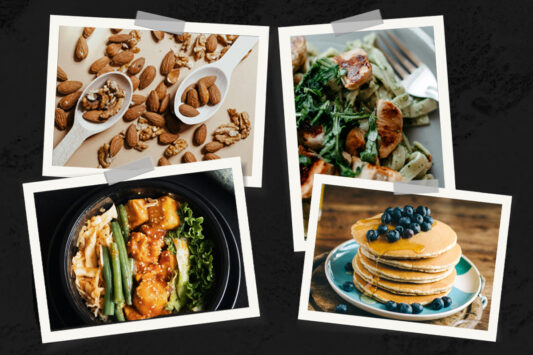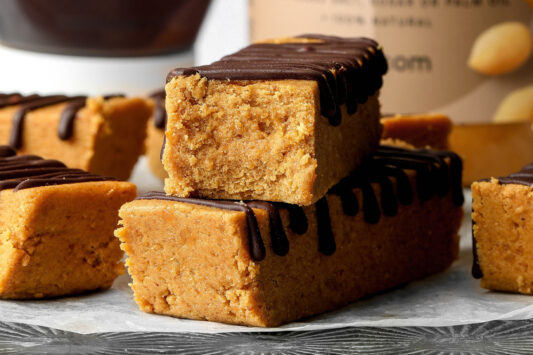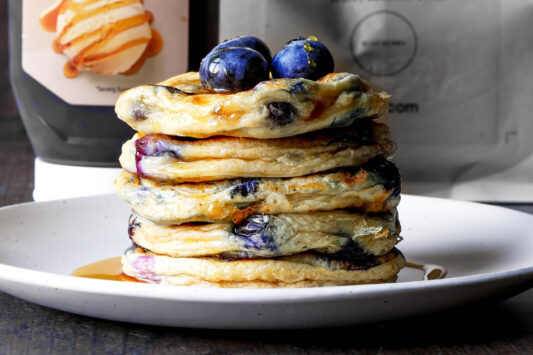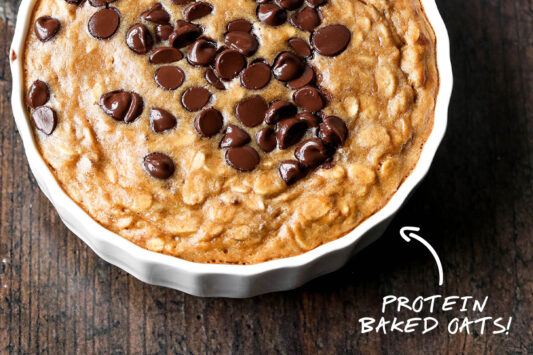Once upon a time, the staple diet of a strength or physique athlete was meat, fish, and eggs. But times change, and more lifters are switching to a plant-based diet. If you’re one of them (or want to be), it’s important to get it right for your health and your gains as well as the environment.
Is it really possible to build muscle, strength, and athletic performance without the bodybuilding classics of chicken, steak, eggs, and whey protein? As people’s personal choices move on, so have we in the sports nutrition industry! It’s never been a better time to change things up and go part or full vegan.
Veganism Through History
The current surge of interest in plant-based eating might be new, but veganism has a long history. Pythagoras (500 BC) followed what would now be called a vegan diet, and the Buddha discussed plant-based diets with his followers around the same time in history. In the early 1800s, veganism started to take shape (the poet Shelley refused to eat eggs and dairy products for ethical reasons).
But it wasn’t until 1944 that modern-day veganism was officially formed, when six non-dairy vegetarians met to discuss formalising this approach to eating and living. (Fun fact: they briefly considered the name “benevore” before settling on “vegan”.)
In 1949, the first official definition of veganism was reached: “to seek an end to the use of animals by man for food, commodities, work, hunting, vivisection, and by all other uses involving exploitation of animal life by man.”
Vegan Athletes In Strength Sport
Right now, there are several high profile strength and power athletes who choose to eat either an entirely vegan diet, or to vastly reduce their consumption of animal products. Dana Linn Bailey and her husband Rob Bailey document their shift away from meat, fish, and dairy on their social platforms (and seem happy to answer questions and discuss their choices). Former Mr Universe Barny Du Plessis and his bodybuilder partner Josie Keck both competed to high levels on a vegan diet. The strongman Patrik Baboumian is a vegan.
And that’s just the well-known ones. Start to ask around at your local gym, or on your social media, and you’ll uncover plenty of people who a fully vegan or are transitioning to a more plant-based diet.
Getting What Your Body Needs
Step back and look at what the human body actually needs to build and thrive, and you’ll see how well you could do on a vegan diet.
> enough protein, including a full range of essential and non-essential amino acids
> carbohydrates
> essential fats, including omega 3
> micronutrients
> fibre
You can get all of those things on a vegan diet. In fact, lots of the foods associated with a healthy living, gym going lifestyle are already vegan: oats, potatoes, rice, nut butters, vegetables, fruit, berries, rice cakes, nuts, seeds, pulses, coconut products, almond milk, avocados….
If you’re still struggling to get your head around hitting your macros on a vegan diet, think outside the (sometimes limited) standard healthy-eating box.
Eat lots of different types of grains (not just rice and oats). Enjoy a massive variety of vegetables, including root veggies. Get to grips with legumes and pulses. Make sure you don’t dip too low in fat (good vegan sources are coconut produces, flaxseed, olive oil, nuts, avocados, and nut and seed butters).
For protein powder, look beyond whey and casein. You can choose from hemp protein, brown rice, or pea protein powder or even get a vegan blend. Don’t forget protein sources like tofu and seitan steak. It has an amazing leucine profile – in fact only whey is higher!
Sports Supplements For Modern Vegans
Vegans and plant-based eaters are really well served by sport supplement and healthy eating food companies. There has been a rise in vegan, plant-based protein bars and protein snacks.
We have recently launched our very own Vegan Protein Bars with a nougat style centre, coated in chocolate!
Take a look at our other vegan offerings, including Complete Vegan Blend protein powder (tastes amazing – even some non-vegan choose it over whey), Complete Vegan Gainer, and 4-Seed Peanut Butter (a great fat source for vegans, with peanuts, sunflower seeds, linseeds, pumpkin seeds, and chia seeds).
It’s easy to get dairy-free alternatives for milk, cheese, spread, and yoghurt in any supermarket. The internet is packed with recipes for meals, snacks, smoothies, desserts, and baking which are completely vegan. And there are vegan and plant-based restaurants and cafes in most towns.
Do you eat a full or part vegan diet?
Related articles
Want to see more vegan related content? We believe that every person, with support, has the right to transform their lives through fitness. That’s why we’ve put together hundreds of articles with expert advice, all to help you on your fitness journey. From recipes to supplement guides, see our other vegan-related articles.
Vegan myths What is soy protein isolate?
Protein French toast recipe Low-calorie vegan foods
Guide for Vegan Supplements Vegan muscle building
Pasta yeast flakes recipe Fridge cake recipe
Different types of vegan protein powder Vegan oat protein bar recipe











